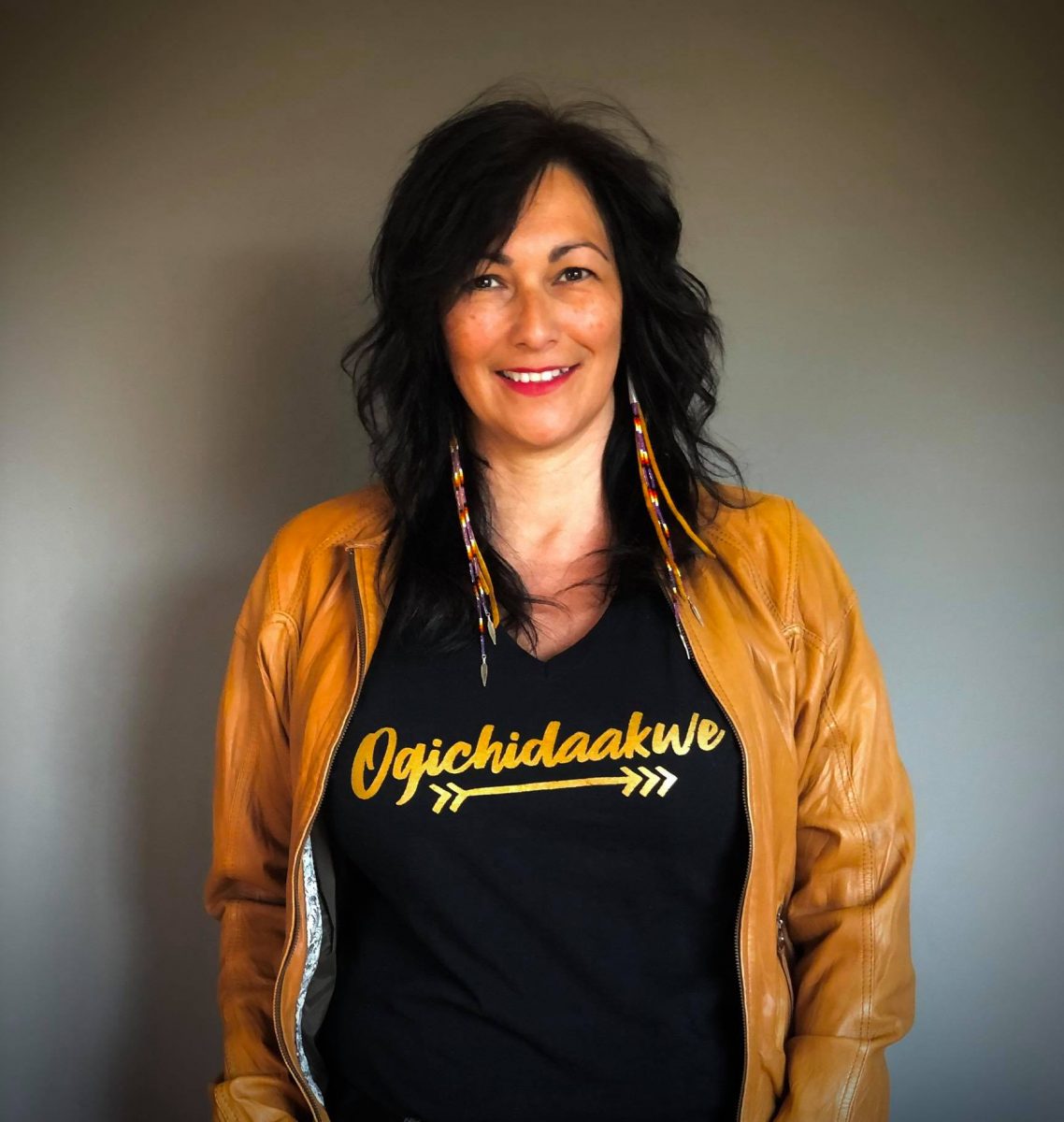
Alumna Diane Roussin [BSW/96]
Living library creates an interactive way to celebrate Indigenous alumni success
Influential Indigenous University of Manitoba (UM) alumni will share their stories and experiences at an upcoming virtual living library event. A living library is a unique way for “readers”, including Indigenous students, the UM campus community and the public, to engage and interact with alumni as “living books” and learn from their individual journeys. This year’s living library will welcome alumni Diane Roussin [BSW/96], Fauna Kingdon [BComm (Hons)/06], Raven-Dominique Gobeil [BA/16, JD/19] and Ryan Gorrie [BFA (Hons)/05, MArch/09].
UM Today caught up with alumna Diane Roussin to see where her path has taken her since graduation. Roussin is Anishinaabe and has family from Skownan First Nation, Treaty 2 Territory. Since graduating with a bachelor of social work, Roussin has learned the value in centering community while keeping busy as the project director for The Winnipeg Boldness Project.
UM Today: What was your educational journey like in both traditional and western learning?
Diane Roussin: I am fortunate and privileged to have been raised in my family, with my culture, and with all our values and principles at the centre of my upbringing. I know that some Indigenous people cannot say the same because of Residential schools and the Sixties Scoop. We did, however, grow up in a challenging environment at times, including living in dire poverty and overcoming family violence and alcoholism. But I do think some of those traumas have contributed to a definite resiliency and toughness.
Heading off to university was the first time I started to learn about colonization and assimilation policies. A lot of things made sense after that. All the things that I had internalized were done to me and to our people, and it started to anger me. I needed to do something with that anger. That led me to pursuing a bachelor of arts from the University of Brandon, and then in social work at the University of Manitoba.
UM Today: What prompted you to get into social work?
DR: I decided I wanted to take on social work from a policy level. I felt like I could make a better change that way. I ended up going into a practicum that allowed me to work on Indigenous policy. I began working in child welfare, and again, that angered me. There were so many Indigenous children in the system with not enough Indigenous social workers. There was no empathy for the Indigenous families.
My move to Winnipeg led me to the inner-city and the North End and is where I witnessed the groundwork already being done by Indigenous matriarchs in the community. It is where a lot of my community-based learning began.
UM Today: Tell us about what you’ve learned by working in community.
DR: While post-secondary was very theory-based learning, these women in community were already doing the groundwork for social change. I think school took me away from that community-based learning for a while. They applied more of an Indigenous context and these women quickly became my teachers, my role models and my mentors. They taught me how to work outside of that theory I had studied for so long. Working from a strength-based approach, it is these women who have started so many of the sophisticated non-profits that exist in the North End now. They are leaders in Winnipeg and in the country, and I feel so privileged to have been a part of this journey. I have been living right in the middle of community wisdom since I left academia.
UM Today: Tell us about what you are currently working on.
DR: I am running what is called a Social Lab, which centres the ideas and experiences of the community and combines them with data to support community development. My work centres Indigenous social innovation, including Indigenous wisdom, that guides us through social complexities and systemic issues. For example, 70-75 per cent of those incarcerated are Indigenous and 95 per cent of those in care are Indigenous children. This is not because Indigenous people lack the capability of contributing — it is because someone else benefits from keeping our people there. The lab I am currently working on relies on Indigenous wisdom in prototypes and solutions, and we understand that upscaling this work would benefit not just Indigenous people, but all people. This work includes all my relations at its core.
The Winnipeg Boldness Project is only six years in, and we are one of the longest social labs in Canada. People often look to us because we are charting the path in this field. Our little lab in the North End of Winnipeg has national eyes on it, and that is because of the work of Indigenous matriarchs here in the city. I had the privilege to bring all my networks and relationships into The Project, so it rests on a foundation of work that has been done in community already for a very long time.
UM Today: What kind of advice would you give a student who may be interested in doing work based in community?
DR: Bring together the Indigenous wisdom of knowing, being and doing. There is a danger in doubting the sophistication of those traditional ways because we are sometimes told they are less than western modes of learning. My advice would be to try hard to value and honour both, and when you can, bring these two styles of learning together. Hold up and embrace your Indigeneity, even if you do not see it reflected in learning.
Like The Winnipeg Boldness Project on Facebook or follow them on Twitter and Instagram at @wpgboldness.
You can hear more from Diane, as well as the other UM alumni, by joining the virtual Indigenous Alumni Living Library event on Oct. 2. For Zoom login info, please email karen.richard@umanitoba.ca.






